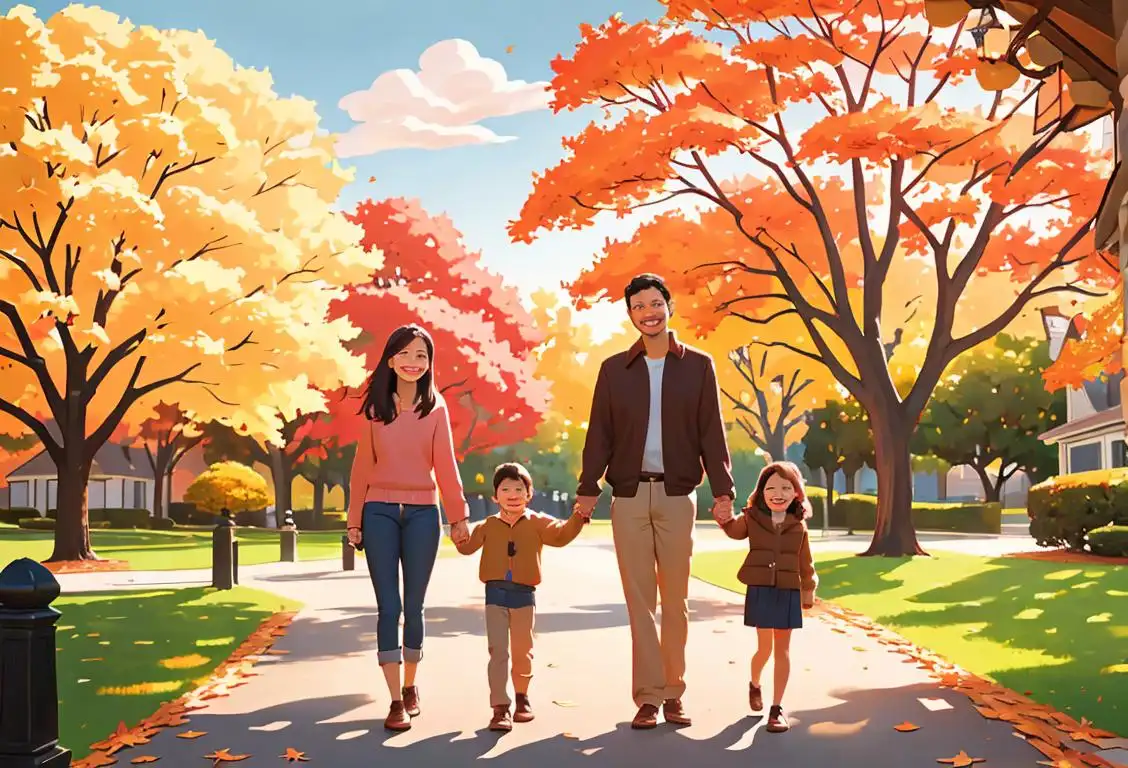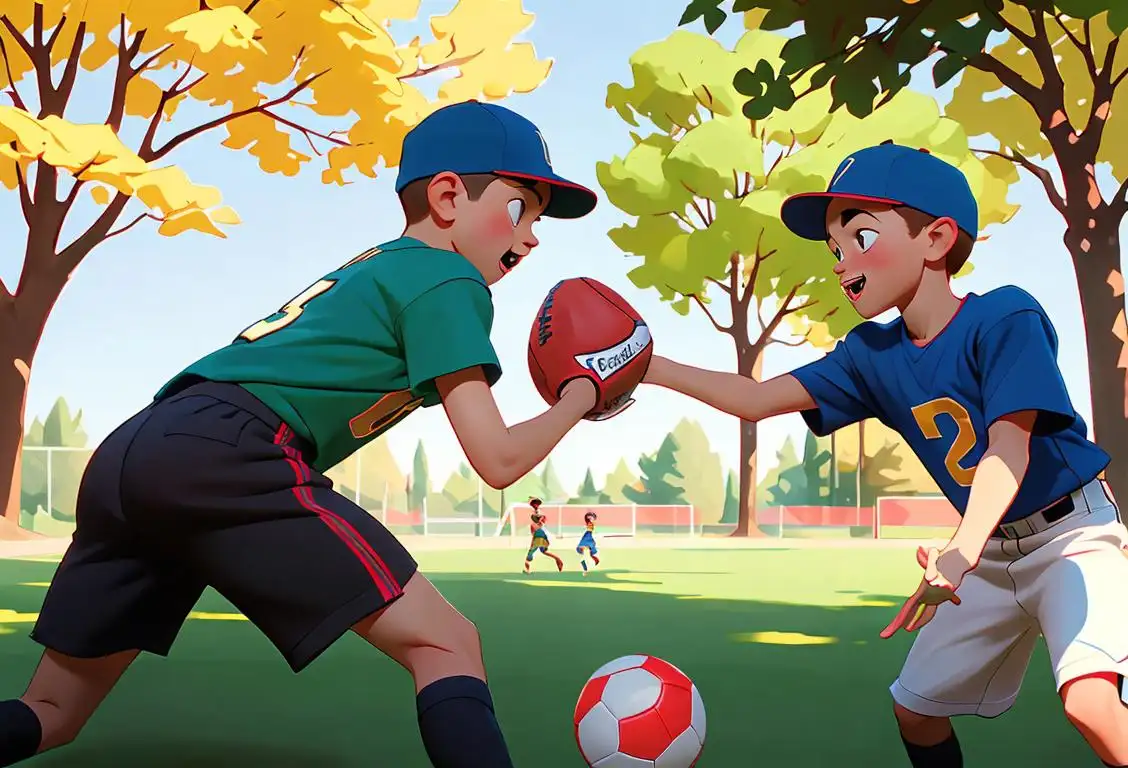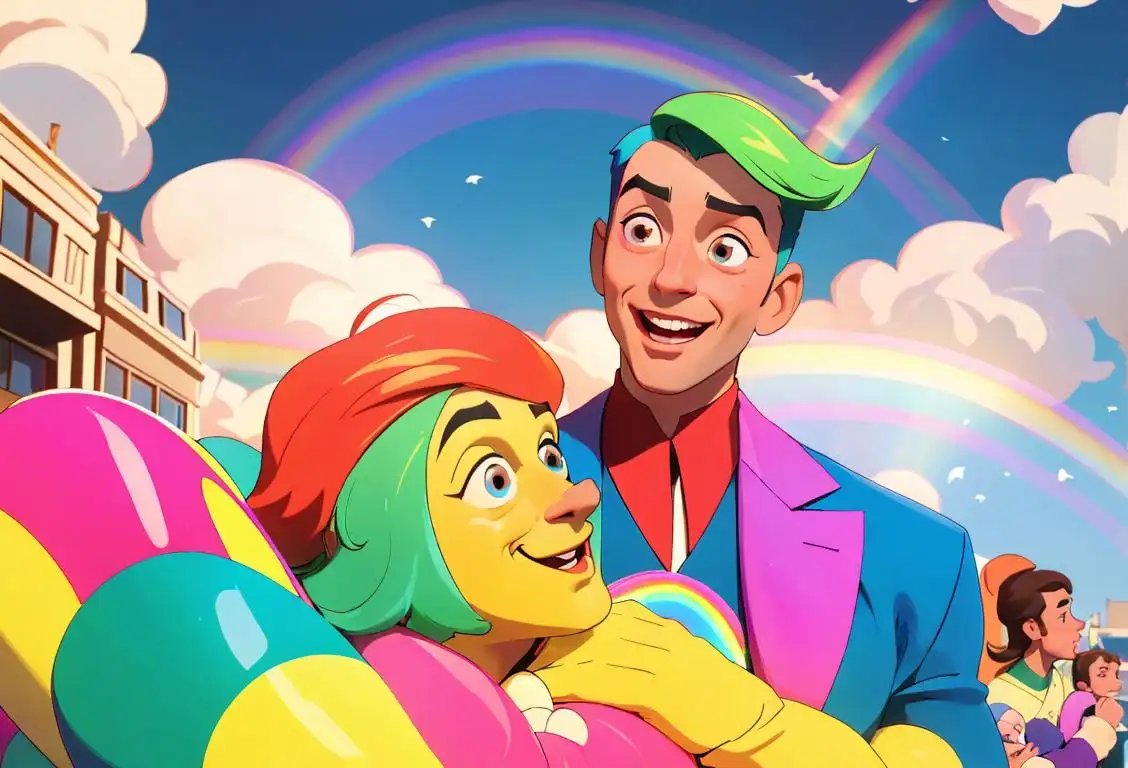National Adoption Day

Hello wonderful world of web surfers! Buckle up as we are about to take a fluffy jaunt down the heartwarming alley of National Adoption Day history - a day when the internet absolutely blossoms with love and attachment stories. Let's face facts, you don't necessarily need to share genes to share jelly beans, right?
When is Adoption Day?
It's national adoption day on the 23rd November.
A Deep Dive into National Adoption Day's Web History
First of all, why is National Adoption Day a thing, you might ask? Well, it's to celebrate all those brave souls who have opened their hearts and homes to children in need, and to raise awareness about the ongoing need for adoptive families. Can there be a nobler cause than gifting a child a forever family? We think not!
Now, let's nibble at some nerdy numbers. In our vast virtual vault, we have recorded a whopping 14,939 mentions of National Adoption Day. Ranging from tweets fluttering about emotions to Instagram hearts hovering over heartwarming pictures of newly formed families, every mention adds a lovely layer to the story.
The Internet's Favorite National Adoption Day
Hold on to your hats, folks as we pull out the big guns. The Internet just couldn’t get enough of National Adoption Day on November 23, 2019. Adoption hashtags flew around like confetti, warm wishes ricocheted off every virtual wall and hearts were just bursting with joy and jitters around the globe. Clearly, this day left a digital 'footprint' larger than the cutest baby bootie on earth!
Why the Buzz?
So, what made this day so special? Well, the numbers suggest it's the heartwarming human factors that truly touch the keys. Stories and snapshots of families built across continents, of little faces beaming from the folds of new families, and of adoptive parents swelling with pride as they welcomed another seat at their tables; all these were the winning components of this virtual lovefest.
History behind the term 'Adoption'
1313
Early Notions of Adoption
The concept of adoption can be traced back to ancient civilizations such as Babylon, Egypt, and Greece. In these early societies, adoption was often seen as a way to ensure the continuation of family lines, as well as a means for childless couples to have heirs. However, adoption in these early times was not regulated by any formal laws or institutions.
43 AD
Roman Influence on Adoption
The Roman Empire played a significant role in shaping the early adoption practices. The Romans developed a legal framework for adoption which allowed for the transfer of familial rights and responsibilities. This included the ability to inherit property and maintain lineage through the adoption process. Adoption in Roman society was primarily focused on adult males who needed heirs to continue their family name and status.
1851
The Modern Adoption Movement
The modern concept of adoption began to take shape in the 19th century with the establishment of formal adoption laws and institutions. The first modern adoption law was enacted in the State of Massachusetts, USA in 1851. This law allowed for the adoption of non-biological children through a legal process, providing them with the same rights and privileges as biological children.
1924
Inter-country Adoption
The practice of inter-country adoption gained popularity in the early 20th century. In 1924, the first recorded inter-country adoption took place between the United States and the Soviet Union. This marked the beginning of a global movement to provide homes for orphaned or abandoned children from one country to another.
1973
Modern Adoption Practices
The 1970s witnessed significant advancements in adoption practices. Closed adoptions, where the identities of birth parents were sealed and kept confidential, began to give way to open adoptions, allowing for ongoing contact and communication between birth parents, adoptive parents, and the adopted child. This shift aimed at acknowledging the importance of a child's origins and promoting healthy family connections.
1993
International Adoption Convention
In 1993, the United Nations established The Hague Convention on Protection of Children and Co-operation in Respect of Intercountry Adoption. This international agreement aimed to set standards and guidelines for inter-country adoptions, ensuring the protection of children's rights and preventing the exploitation or trafficking of children. Many countries have since become signatories to this convention, promoting ethical adoption practices worldwide.
Did you know?
Did you know that in 2019, emojis virtually exploded on National Adoption Day? That's right. The heart, family, and baby emojis all skyrocketed in use that day! Say it with me now: Awwwwww!Tagged
awareness fun celebration love family adoption childrenFirst identified
7th April 2015Most mentioned on
23rd November 2019Total mentions
14939Other days
Adoption Day
Brothers And Sisters Day
Love Your Pet Day
Spoil Your Dog Day
Twin Day
Bae Day
Brothers Day
Have Sex Day
Gay Uncles Day
Martini Day








